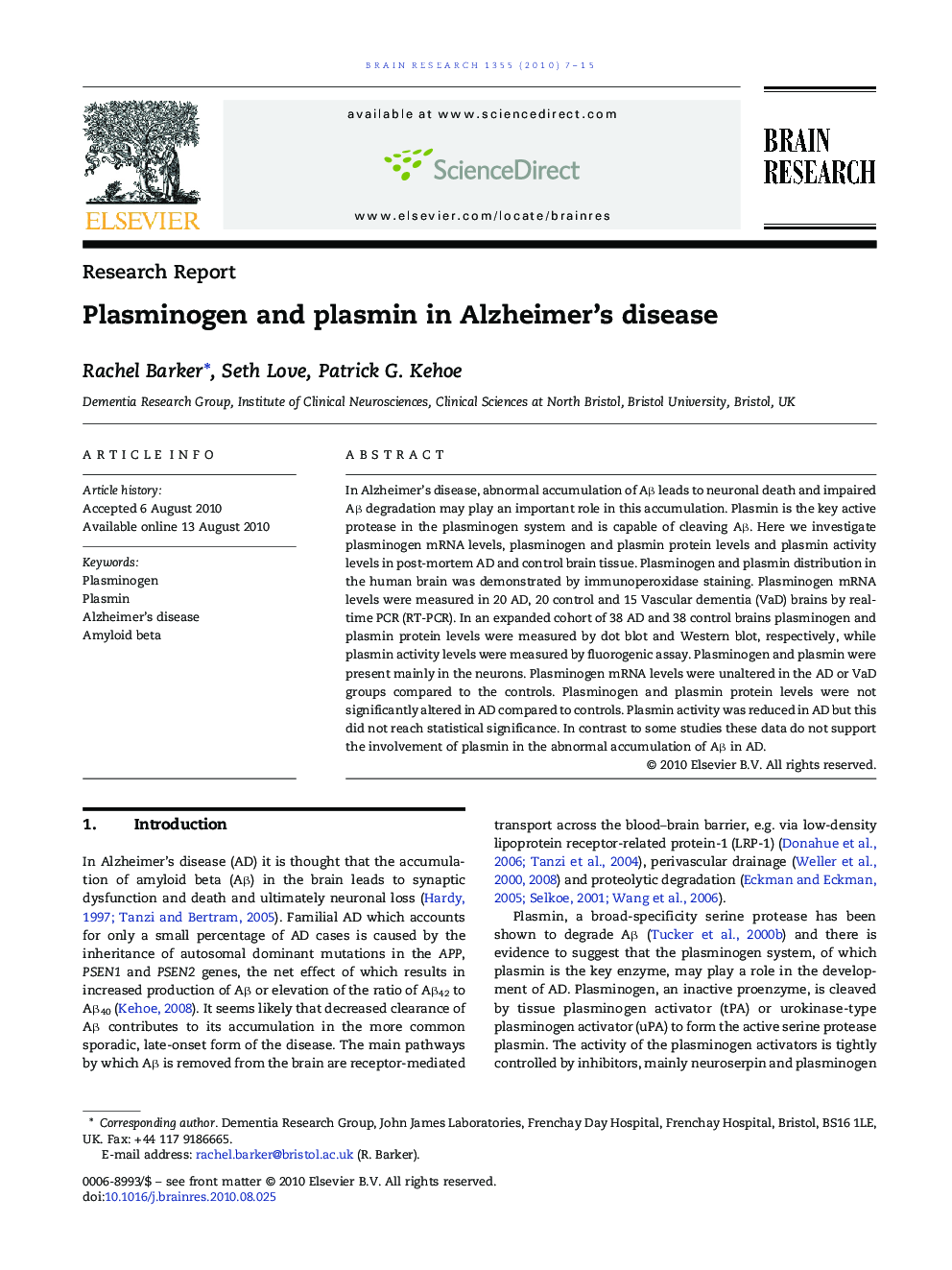| Article ID | Journal | Published Year | Pages | File Type |
|---|---|---|---|---|
| 4326482 | Brain Research | 2010 | 9 Pages |
In Alzheimer's disease, abnormal accumulation of Aβ leads to neuronal death and impaired Aβ degradation may play an important role in this accumulation. Plasmin is the key active protease in the plasminogen system and is capable of cleaving Aβ. Here we investigate plasminogen mRNA levels, plasminogen and plasmin protein levels and plasmin activity levels in post-mortem AD and control brain tissue. Plasminogen and plasmin distribution in the human brain was demonstrated by immunoperoxidase staining. Plasminogen mRNA levels were measured in 20 AD, 20 control and 15 Vascular dementia (VaD) brains by real-time PCR (RT-PCR). In an expanded cohort of 38 AD and 38 control brains plasminogen and plasmin protein levels were measured by dot blot and Western blot, respectively, while plasmin activity levels were measured by fluorogenic assay. Plasminogen and plasmin were present mainly in the neurons. Plasminogen mRNA levels were unaltered in the AD or VaD groups compared to the controls. Plasminogen and plasmin protein levels were not significantly altered in AD compared to controls. Plasmin activity was reduced in AD but this did not reach statistical significance. In contrast to some studies these data do not support the involvement of plasmin in the abnormal accumulation of Aβ in AD.
Research Highlights► The plasminogen system may play a role in Alzheimer's disease (AD) because plasmin degrades Aβ protein. ► This study investigated plasminogen and plasmin in human post-mortem brain tissue. ► There were no significant differences in plasminogen mRNA, plasminogen and plasmin protein or plasmin activity in AD brain tissue compared to control. ► We concluded that Aβ accumulation in AD is unlikely to result from plasminogen system dysfunction.
